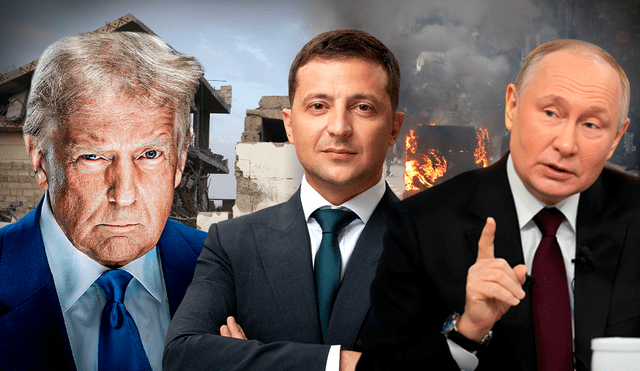Trump and Putin seek limited ceasefire in Ukraine war over energy and infrastructure
In a groundbreaking development, Presidents Donald Trump and Vladimir Putin have decided to initiate a limited ceasefire in the ongoing Russia-Ukraine war, with an emphasis on energy and infrastructure. This ceasefire is designed to foster peace and open the door for negotiations.

In a notable shift in the Russia-Ukraine war, President Donald Trump and Russian President Vladimir Putin held a lengthy conversation on March 18, 2025, and agreed to initiate a limited ceasefire focused on energy and infrastructure targets. The White House stated that this move marks the first step toward achieving a broader peace agreement, with hopes that a maritime ceasefire in the Black Sea could follow, leading to a full cessation of hostilities.

ALSO SEE: Chief Justice John Roberts defends judicial independence amid Trump's calls to impeach judges
Ukraine and Russia's demands to end the war
While both the U.S. and Russia have expressed their commitment to ending the war, the future of the ceasefire plan depends largely on Ukraine’s response. Ukrainian President Volodymyr Zelensky has been skeptical of Russia’s intentions, citing the ongoing conflict and Russian advances. In recent talks, Ukrainian officials presented their version of a ceasefire proposal, which included conditions such as the Black Sea ceasefire and the release of prisoners. However, it remains unclear whether Zelensky will accept the U.S.-Russia framework.
The Kremlin confirmed that Russia and Ukraine will exchange 175 prisoners of war, as part of the ceasefire negotiations. Additionally, Russia will release 23 badly wounded Ukrainian soldiers. These moves signal the first signs of cooperation between the two nations and could serve as an essential confidence-building measure to pave the way for further peace talks and ceasefire agreements.
The Russian president has laid out several conditions for the ceasefire, including guarantees that Ukraine will not use the pause in hostilities to rearm and resume its military activities. Putin has also called for Ukraine to abandon its NATO ambitions and reduce its military forces significantly. These terms have raised concerns, especially in light of the broader geopolitical implications for Ukraine's sovereignty and its relations with the West.
Zelensky’s concerns over the war
Despite the efforts to initiate a ceasefire, President Zelensky remains doubtful about the sincerity of Russia’s commitment to peace. In a video address, Zelensky warned that Putin continues to extend the conflict, despite his public calls for peace. The ongoing Russian attacks and military advancements in Ukrainian territories further fuel Zelensky’s skepticism, as the Ukrainian military faces mounting challenges on the frontlines.
Trump’s role in U.S.-Russia relations and peace talks
President Donald Trump has long touted his close relationship with Vladimir Putin and has pushed for a swift end to the conflict in Ukraine. Trump has emphasized his belief that Ukraine is not in a strong negotiating position and has claimed that his influence has been pivotal in preventing Russia from further escalating the war. His administration's involvement in peace talks has sparked debate, especially among U.S. allies, who remain cautious about Russia’s intentions.
International concerns over Iran's role in Ukraine war
As the U.S. and Russia push forward with their ceasefire talks, international concerns continue to mount over the involvement of Iran. The U.S. has accused Iran of supplying Russia with short-range ballistic missiles and attack drones, which have been used in the Ukraine war. Additionally, Iran has reportedly assisted in building a drone-manufacturing facility for the Kremlin. This complicates efforts to bring peace to the region and raises fears of broader regional instability.












